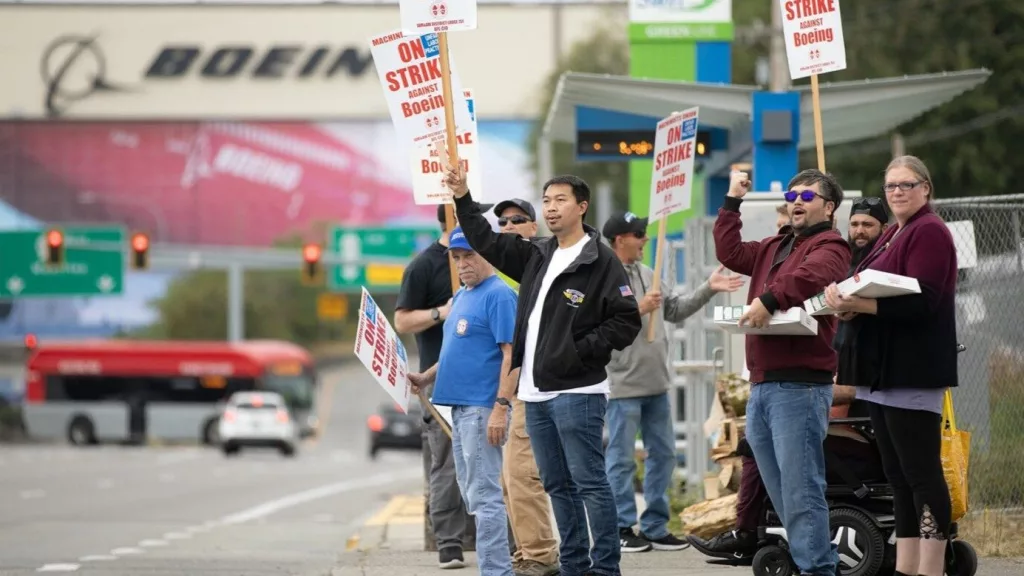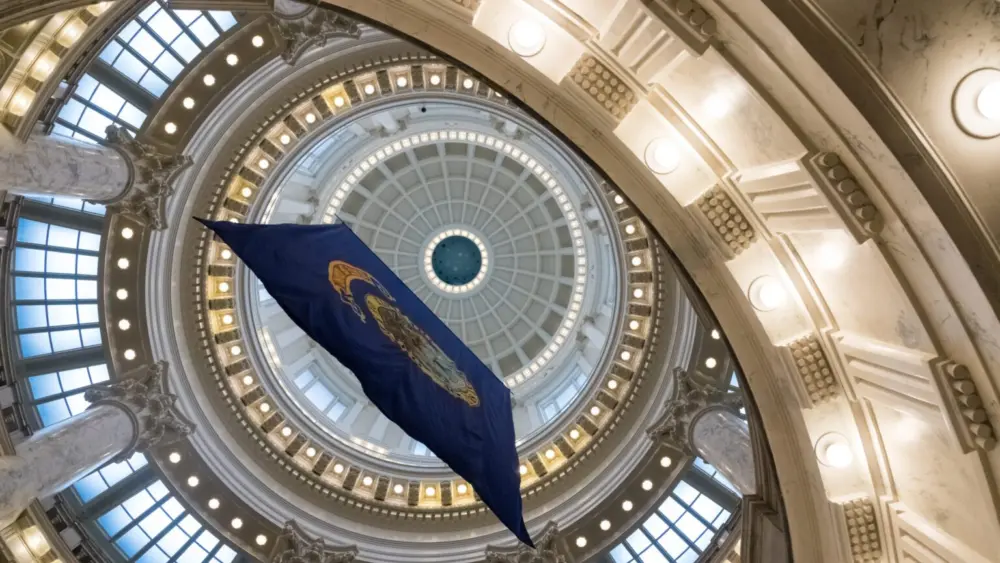OLYMPIA, WA – Labor advocates scored a win on Monday after Gov. Bob Ferguson signed a new law to extend unemployment benefits to striking workers in Washington.
The governor’s conference room was packed with advocates and lawmakers who gathered to see Ferguson sign the law with his blue felt tip pen.
“Allowing striking workers to access unemployment insurance benefits creates a more level playing field for workers to have the resources they need to effectively bargain for better working conditions,” Ferguson said before putting his signature on Senate Bill 5041.
The new law goes into effect on Jan. 1, 2026 and is set to expire on Dec. 31, 2035. Washington joins New York and New Jersey as the only states that provide such benefits to striking workers.
The bill generated controversy during the legislative session, with Republicans and business groups opposing the idea, arguing that it will encourage more workers to go on strike and result in higher costs for businesses.
Democrats and labor advocates say this law will disincentivize bad faith behavior by employers and encourage them to engage with their workers.
“No one wants to go out on strike,” said April Sims, president of the Washington State Labor Council. “Going out on strike is the absolute last resort, and workers that strike do so because there is simply no other option.”
The bill went through several rounds of negotiations over how long workers could collect unemployment insurance. Unemployment insurance is typically available for up to 26 weeks.
When the bill first passed the Senate, the benefits would be extended for up to 12 weeks for strikers. But when it passed the House, the threshold was lowered to four weeks. Lawmakers ultimately settled on six weeks.
Workers will be eligible for unemployment benefits starting 15 to 21 days after the strike begins, depending on the day the strike starts. If the contract is resolved before that time, benefits will not be issued.
The benefits will also be extended to workers affected by an employer-initiated lockout, something labor advocates point to as a tactic businesses use to put pressure on workers during contract negotiations.
The state’s Employment Security Department will also be required to submit annual reports to the Legislature with data on the number of strikes in the state and the cost of benefits for striking workers for Washington’s unemployment insurance trust fund, which is funded by a tax on employers.
Washington State Standard is part of States Newsroom, a nonprofit news network supported by grants and a coalition of donors as a 501c(3) public charity. Washington State Standard maintains editorial independence. Contact Editor Bill Lucia for questions: info@washingtonstatestandard.com.





